- Home
- Helen Dunmore
With Your Crooked Heart Page 4
With Your Crooked Heart Read online
Page 4
Of course she can. If Paul doesn’t want the heap of greying rabbits, the Barbie collection, the dozens of Barbie outfits with matching high heels which fall off and get stuck inside the Hoover, the six jumbo packs of felt-tips that never have any reds or yellows left in them, then you’re more than happy to keep them here. But Paul said, ‘Just pack everything.’
The day has come, the one you never reckoned on.
‘Do you want to make me take it to court?’ he asked you. ‘You wouldn’t win, I can tell you that, not with the brief I’d get. She was on the doorstep for nearly an hour, in the rain.’
‘I thought Lola’s mum was bringing her home.’
‘She did. But there was so much traffic she just dropped her off. Anna said she could see the lights were on and she knew you were in. And the silly cow didn’t wait. Why do you think Anna told her that? Because she didn’t want her to come in and see you. Because she knew the state you’d be in. You’ve done it to her before, haven’t you? She’s come back from school and you’ve been drinking since she left in the morning.’
You didn’t answer. There was nothing to say so you covered your mouth, so as not to say it and not to let out the whimpering that wanted to beg him not to do it. You knew he would do it, whatever you said.
‘She was waiting on the doorstep. Anyone could have come by. She could see the lights and she knew you were there but she couldn’t make you hear.’
‘I was asleep,’ you say. ‘I’ve been having bad nights. I must have gone into such a deep sleep I didn’t hear the bell.’
‘Yeah, right, you’ve been having bad nights. And what do you think Anna’s been having? Thank God she had the sense to go down to the call-box and get me on my mobile.’
And he’d had his key. He’d come in, with Anna, and found her. He had proof.
‘And don’t try to tell me it was just the one time. I’ve been asking around. I’ve been to the school. She’s been late, some days she’s not been in at all. There’s been concern, that’s what they said. Can you imagine me standing there and hearing that, there’s been concern over my own daughter? This place is a pit. There isn’t even proper food in the fridge for her, with all the money I give you.’
‘We have our meals out a lot. Sometimes we have take-away.’
‘Take-away! For Christ’s sake, Lou, this is Anna we’re talking about. Well, that’s the end of it. I’m taking her. You can see her, I’m not stopping you, but she’s living with me.’
Your face aches with the cold. You’re kneeling on the stone flags of the terrace, and your arms circle Anna’s waist. She stands stiffly inside them, not resisting you, but not yielding to you either. The last leaves in the garden are stiff, too, rattling in the cold wind. You feel as if you are falling off the edge of the world. Dead leaves lie in heaps in behind the pots, and the bare vines of creeper are flapping loose. You ought to put more nails in the walls, but you haven’t got round to it.
You draw Anna close to you. ‘Anna,’ you say, ‘guess what? I went down to Harrods and got you that Little Bear pyjama case.’
But Anna’s face is still turned away. You know it’s not because your breath smells: you’ve been using Gold Spot and Listerine ever since she rolled over to the wall when you bent to kiss her at bedtime.
‘We could put your new pyjamas in there, and then when you get to Dad’s you can cuddle the pyjama case in bed. It’s like a teddy, isn’t it?’
‘I don’t have teddies any more.’
‘No, I know you don’t.’
‘Dad says I can choose the colour of my room.’
Her voice is small and cool. She will not break down, she will not soften in your arms.
‘That’s right,’ you say. ‘You can choose your favourite colours.’
‘Will you come and see it?’ She is tensed for your answer.
‘We’ll have to ask your dad.’
‘And I’ll be coming here.’
‘That’s right.’
‘Mum?’
‘What?’
‘Mum. You won’t move, will you?’
‘Course not.’
‘You said before, I was going to live with you always.’
‘I know. But that’s not fair on your dad, is it? He’s got to have his turn.’
‘And then you’ve got to have yours.’ Her face has lightened a little. This sounds better than anything you’ve been able to tell her before. Taking turns: she knows all about that.
‘I love you,’ you say. She doesn’t answer. It’s wrong, it’s too heavy, too emotional, grabbing at her like everyone’s been grabbing at her these past weeks. ‘You’re my best banana. All the monkeys in the zoo are jealous of me. They want to come and live in my garden so they can see Miss Anna Banana.’
‘Oh Mum.’ She squirms, but a frowning little smile flits over her face. ‘You’re always silly.’
‘Yeah, I am, aren’t I? Not like you, Miss Anna Banana.’
‘Did you used to call me that when I was little?’
‘I used to call you Trouble when you were little.’
‘I wasn’t trouble. I was good.’
‘Yeah, you were, you were good. You were the best.’
Suddenly Anna’s arms are tight round you, her voice fierce in your ear. ‘Don’t ever say that to anyone else. Only say it to me.’
‘Who else have I got to say it to?’
But that’s wrong too. Why should she have to think about you being alone? She’s got enough, without that. Quickly, you say, ‘Listen, you’ve got my mobile number, haven’t you? As well as the number here.’
She nods. ‘I’ve written them down in my diary in case I forget.’
‘You can always ask Dad. He’s got them.’
You feel frozen. You need a drink but you won’t touch one till Anna’s gone. You keep the thought of it at the back of your mind, like the rescue that comes in the last five minutes of old Westerns, the kind you watched on Sunday afternoons when Mum and Dad were upstairs having a rest. They used to leave you a bottle of Seven-Up, and a packet of Iced Gems. Later on they came down warm and happy and Dad put you on his knee while Mum made a cup of tea with something a bit stronger in it for Dad. And you all ate a sticky fruit cake which Mum unwrapped, peeling off the greaseproof paper base and slicing it up so you got the bit with the most cherries. What’s Anna got to remember, compared to that?
Don’t think of what Anna’s got to remember. Those afternoons cold and fuggy as old ashtrays. The light going, the promised trip to the park or the 200 once more failing to happen. Because everyone has a glass of wine to relax, don’t they, and it’s the weekend. And the level of the wine shrinks down the bottle as if someone else is sucking it up. For a while you’re happy and Anna’s happy, or at least you can persuade yourself that she is, apart from a wary edge to her laughter and the way she rushes off to get her maths book to show you when she sees you rummaging in the fridge for the second bottle. Because she still thinks she can distract you. You can even remember times when you poured a glass for Anna too, because it made it seem more normal, like something you were sharing. But she wrinkled her lips and wouldn’t touch it.
And then it’s late afternoon, darkening. Mum’s tired, Anna, she’s got to have a little sleep.
You don’t know how long you’ve been asleep. Anna comes in with a pale cup of tea wobbling in its saucer. You grope up out of sleep but you know you can’t stay awake. You feel too bad.
‘Come and have a lie down with me, Anna,’ you say, but she doesn’t. You tell her to go and put on a video. A Hundred and One Dalmatians, she loves that, it’s always been her favourite. Later you wake again and she’s got herself into her pyjamas, even brushed her teeth.
‘Night, Mum,’ she says, but she doesn’t kiss you.
The bamboo rustles. Anna leans in towards you. Her eyes are closed, her hair slips over her cheeks. You touch her cheek with your lips, and her skin is cold.
‘It’s better for you, Anna,’ you say, because it’
s the truth and you know she’s listening now, not resisting you. ‘You’ll have everything just the same. Your friends and school and all your toys. Dad’s better at looking after you than I am, just now. Come on, it’s cold out here. Let’s go and find which of those old rabbits you want to take.’
‘I wish it was like this all the time,’ says Anna. You know what she means but can’t say: You talking to me, you remembering about my rabbits, knowing about my homework and how I like tomatoes hot but not cold. You staying there on the safe side of the tracks, being a grown-up. Not me watchingyou pee on the floor because you can’t get to the toilet on time. Not me being allowed to watch videos all day if I want, and take money for sweets out of your bag. Not me seeing how frightened you are of what’s happening to us both, and then grabbing me tight and trying to hug it all away.
‘It’s better,’ you say, stroking back her hair. You are not going to cry or do anything stupid before Paul comes. You’re going to pack her bags with her and sort out the things she can’t take but which Paul will collect another day. You’re going to make sure her teeth are clean and her hair is brushed and she’s got her homework diary with her. You won’t slip: there’s only an hour to go.
The day has come, the day you never reckoned on.
Six
After Anna was born, Paul began to work even later. He’d leave messages for me on the answerphone. Sometimes I thought he waited until he knew I’d have gone out, so he could leave those messages and not talk to me.
‘I’ll be back late. I’ve had to go to the Deptford site. Don’t wait up,’ or ‘I’m going to Cardiff to chase a surveyor. I’ll stay overnight.’ He never remembered to say the name of the hotel, even after I said, ‘What if I need to get in touch with you? What if something happens to Anna?’ But he shrugged. He said, ‘It won’t.’ Even though he was looking straight at me, I couldn’t see into his eyes. I would lie awake thinking about it, and I’d start to frighten myself, and then I’d tell myself, ‘Don’t be stupid. You’re imagining things.’
I saw a lot of Johnnie then. He wasn’t supposed to be living with us any more, but even though he had the flat, our house was still his home. He had his own key, and he’d let himself in at any time of the day or night. It stopped me worrying about burglars, because every time I heard a sound I could think: ‘It’s Johnnie.’ He’d come into the hall and prowl around, picking up my letters and listening to the messages on the answering machine. Paul’s voice on the machine was so like Johnnie’s that it must have been like listening to himself. I’m not talking about accent: anybody can change that. It’s the grain of the voice, the thing that’s there like the grain in wood when you cut it. You can get brothers who don’t even speak to one another, but if you collected their voices from different rooms, they’d sound the same. Johnnie liked hearing Paul’s voice. ‘It’s nice,’ he’d say, ‘the way he always calls home.’
Johnnie wants everything to be stable, except himself. That’s why he liked our house so much, because it was thick with toys and clothes, and the cupboards were always loaded with food. He’d come in when I was alone and perch on the side of the bath and talk about nothing, making me laugh. He had a gift for that. Sometimes I’d have Anna in the bath, too. When I think of those times it’s always about seven o’clock on a June evening. The sky’s darkening, going bluer, and there’s thick yellow dust in the shafts of sun. I always wished a shaft would reach right down into the bath, like a rainbow, but it never did. Anna used to stretch out her hand to touch it. Maybe there was only ever one long hot June, the year after Anna was born. I used Floris’ Rose Geranium in the bath that year. I was extravagant. I ran the bath, washed myself, stood to let it drain and then filled it again with clean, clear water. Then I lay down and the water rocked around me. If Anna was in her chair she didn’t like me to disappear inside the frame of the bath. After a while she’d cry and then I’d sit up and make faces at her and give her back her plastic octopus, then I’d sink back down again, into the water, down, down, until it covered my face. I had my hair cut short that summer. Johnnie liked it, but Paul didn’t. Some men are funny about long hair. They think it makes you look more womanly.
‘More womanly,’ Johnnie said, ‘but not as sexy,’ and he flicked his hand along the wet points of my hair.
Johnnie and I never did anything once Anna was born. I don’t know why. I felt as if we’d made up a story and now we had to live it. And yet I had Anna, and she wasn’t a story. As soon as I had her I felt that she belonged in the house more than I did. But Johnnie isn’t someone you can forget. I was aware of him, all my skin alive with it when I heard him in the hall, his footsteps straying, his fingers pushing buttons on the telephone, his hands unfolding my bills. He was fanatically curious. He wanted to know everything we’d been doing, me and Anna, even though it was never anything much. Maybe I’d shopped for a dress, or had Anna weighed at the clinic. It was the detail Johnnie was hungry for.
Sometimes, when I was lying in the bath, he’d put his hand on my breast, or run it down my belly. And I’d turn and rub my wet face along the inside of his arm, where his skin was pale and fine. But the water made it a different kind of reality, one we didn’t need to worry about, or even think about once I was out of the bath. And there was Anna cheeping and laughing up at us from her chair. She loved Johnnie.
If Paul was away on business, I’d get dry and put on a dress. I love that time, when people are starting to come out for the evening, and the waiters are running in and out of pavement cafés scribbling on their order pads and then calling the order back into the kitchen. It’s like the beginning of a play. With Johnnie you always felt you were part of it, walking on the stage as if you had the right to be there.
We’d wheel Anna out in the warm streets, through to the park. I could have got a babysitter but I never did, because I didn’t want anyone else in the house. More than that, it seemed right to have Anna with us. I used to put some money in my purse from the pile of notes Paul always left for me, under his silver cigarette box, so we could go and eat somewhere afterwards. It would be about nine o’clock. Sometimes Anna would sleep, sometimes not. She never cried. I loved all the taxis going so fast, going somewhere, whirling people off to wherever they wanted to be. And in the park there were people doing t’ai chi and reading under trees, or staring into each other’s eyes as if they knew they were in a play too. Then we’d go back through streets where the pubs were open and spilling on to the streets and there was a smell of beer from the vents. I didn’t drink beer much but I loved the smell of it. The air was tired, like wilted leaves. Johnnie would push the pushchair.
We’d go in somewhere and eat. Johnnie didn’t like fancy places, he liked those little Italian restaurants which all buy their table-cloths from the same warehouse. They welcomed Anna. They’d warm her bottle for her while Johnnie poured Barolo into our glasses. I put Anna in the crook of my arm and wedged the bottle into her mouth and drank from my own glass. Johnnie watched us and said, ‘You shouldn’t be giving her a bottle. You should be feeding her from the breast.’
‘Paul didn’t like it.’
‘Yeah, I know. He didn’t like it. That’s ’cos he wanted you all to himself. Tell you what I’d like, Louise. I’d like to sit in here with you opposite and you’d pull down that strap and feed Anna, and I’d watch you.’
‘They’d chuck us out.’ I said it quickly and I laughed, to hide the fact that what he said moved me so much.
‘Course they wouldn’t. Not in here, they know about babies.’
And it was true. When we came in they always smiled at Anna as if she was the most important person in the restaurant, and called her bella bambolina, and went off to sort out her bottle before they even took our order. They smiled at Johnnie too, and I knew they were thinking how young he was to be so serious and so good with the baby.
When I think back to those June days with Johnnie, I wonder why we were so good. There was I, lying naked in the bath, there was Johnnie. We we
re provoking ourselves, but what for? He touched my nipple, then he looked at me as the water slopped around me. It wouldn’t have taken anything, but we held back.
That was years ago, and it’s all changed now. Paul’s left me. I shouldn’t have bothered to go to that doctor. It was stupid. You do things like that to punish yourself, to rub your face in the facts. I knew as soon as I saw the look on the doctor’s face that he had no respect for me. He was going to enjoy telling me he couldn’t help me.
It’s more complicated, anyway, than pretty or not pretty, young or not young. Paul still goes to bed with me; Sonia doesn’t know that. He can’t help himself, and I can’t help myself, or at least that’s what I tell myself. I go on believing in him, and he goes on believing in me. And he falls asleep afterwards. He always falls asleep, and I lie there and watch him for a while, then I get out of bed and make myself a cup of tea and drink it sitting in the window, while the people go by and Paul sleeps. I never have a drink when Paul’s with me. I sit there, and I feel as if I’m dissolving.
Paul’s left me, and now I have the house to myself. It’s not too big for one person: we were always talking about moving somewhere bigger, but I loved the house so much we never did. I couldn’t leave the garden. Although it’s small, the house cost Paul a fortune, because of the position. He could have bought something twice the size in another postcode, but we didn’t want to.
Look at my legs. Once I went to the front door without bothering to tie the sash on my dressing-gown. I’d been sunbathing in the courtyard. And there he was, in his dark suit and his clean white cotton shirt that smelled the way his shirts always smelled. I smiled. Paul looked at me and I saw my dressing-gown had opened up without me knowing and there I was. And he didn’t answer my smile or reach for me. He looked, and then he said, ‘Cover yourself up.’
He used to love that. Him clothed and me naked, that was what he liked best. Me half-dressed, me undressed, me naked. He used to turn me around as if I was a vase. He used to like me to come to the door naked. That was before we had money, before there were always other people in the house, furniture coming and painters and interior decorators who know more about how you want your house than you do yourself. When you get money there are more and more things you have to have and have to do. You can’t just drag a chair out into the garden when the sun shines: you have to have oiled teak chairs and tables, and a swing-seat with covers that need to go to the cleaners.

 The Ingo Chronicles: Stormswept
The Ingo Chronicles: Stormswept The Deep
The Deep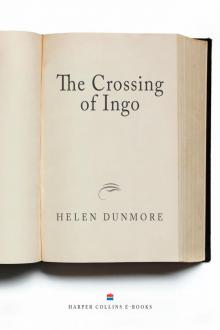 The Crossing of Ingo
The Crossing of Ingo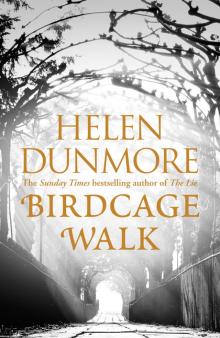 Birdcage Walk
Birdcage Walk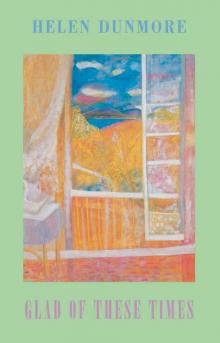 Glad of These Times
Glad of These Times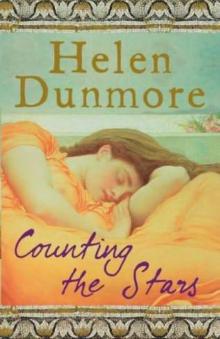 Counting the Stars
Counting the Stars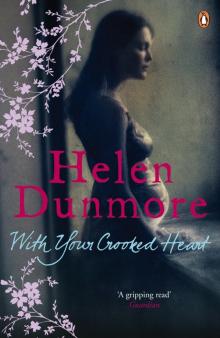 With Your Crooked Heart
With Your Crooked Heart Burning Bright
Burning Bright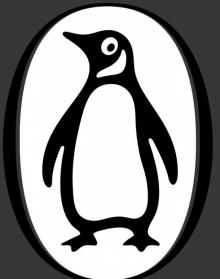 House of Orphans
House of Orphans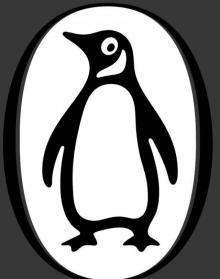 Mourning Ruby
Mourning Ruby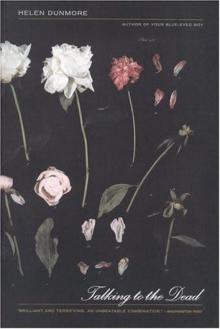 Talking to the Dead
Talking to the Dead Exposure
Exposure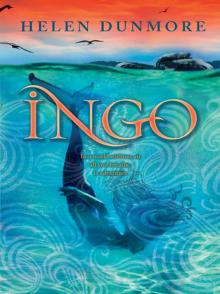 Ingo
Ingo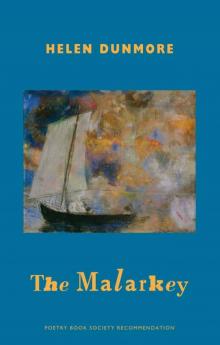 The Malarkey
The Malarkey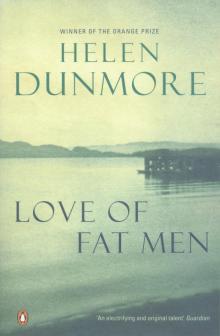 Love of Fat Men
Love of Fat Men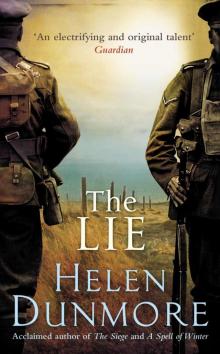 The Lie
The Lie The Siege
The Siege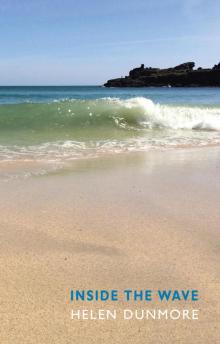 Inside the Wave
Inside the Wave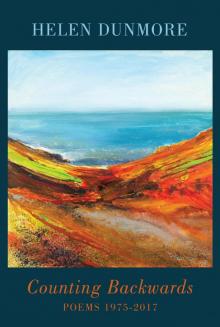 Counting Backwards
Counting Backwards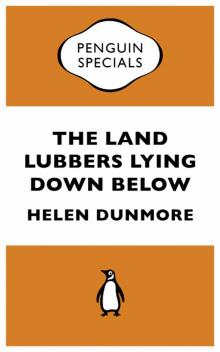 The Land Lubbers Lying Down Below (Penguin Specials)
The Land Lubbers Lying Down Below (Penguin Specials)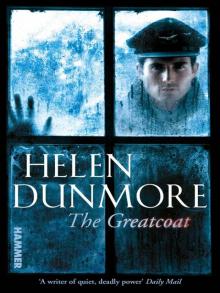 The Greatcoat
The Greatcoat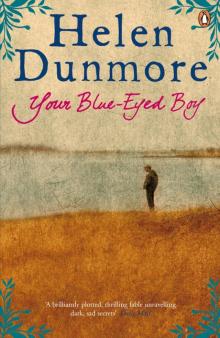 Your Blue Eyed Boy
Your Blue Eyed Boy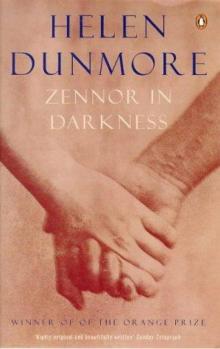 Zennor in Darkness
Zennor in Darkness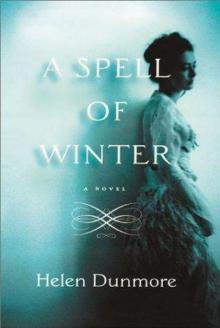 Spell of Winter
Spell of Winter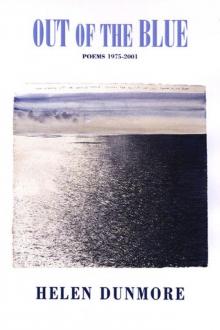 Out of the Blue: Poems 1975-2001
Out of the Blue: Poems 1975-2001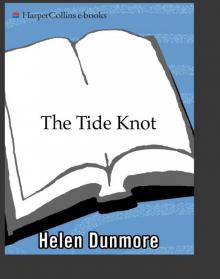 Tide Knot
Tide Knot The Betrayal
The Betrayal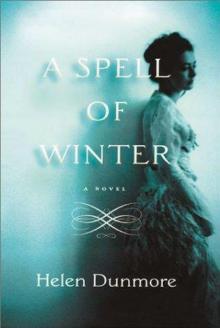 A Spell of Winter
A Spell of Winter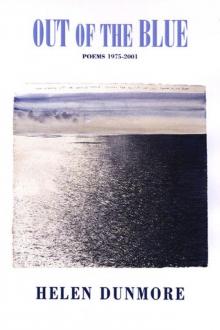 Out of the Blue
Out of the Blue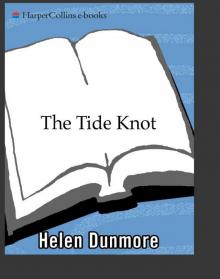 The Tide Knot
The Tide Knot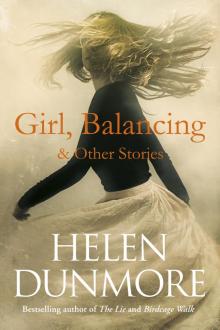 Girl, Balancing & Other Stories
Girl, Balancing & Other Stories Betrayal
Betrayal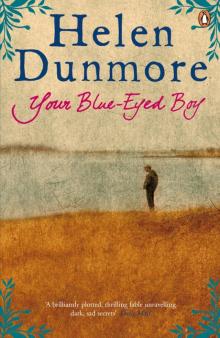 Your Blue-Eyed Boy
Your Blue-Eyed Boy